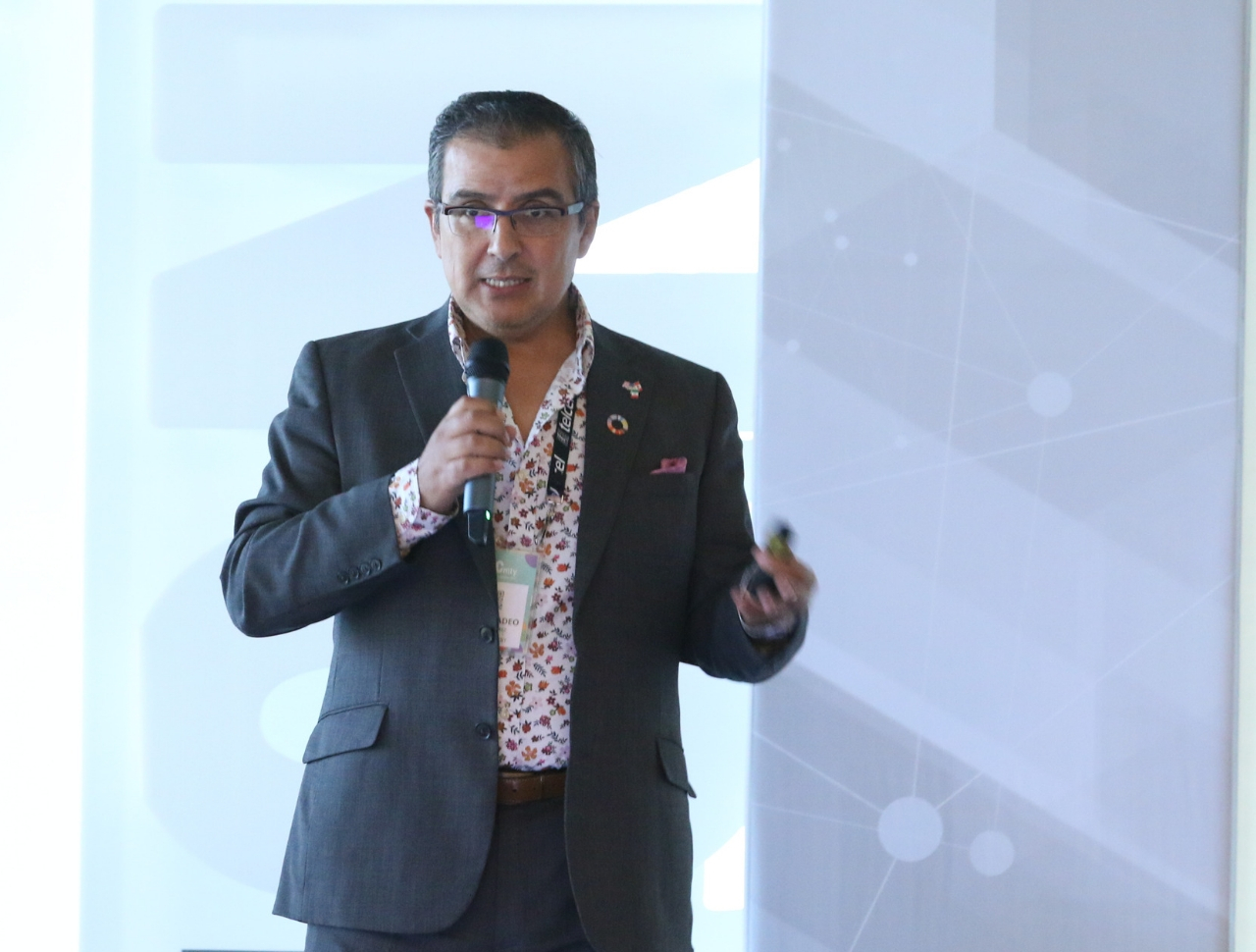Rolando Fuentes contributes as the first author of a policy brief published by Think20, an advisory group for the world's leading industrialized and emerging economies.
By JOSÉ ÁNGEL DE LA PAZ | EGADE BUSINESS SCHOOL
Climate change goals can be achieved by decarbonizing the electricity sector and electrifying sectors that currently use other fuels.
This is stated in a policy brief developed by Think20 (T20) ahead of the G20Leaders- Summit 2020, that will be held virtually on November 21st and 22nd and chaired by Saudi Arabia. Rolando Fuentes, a research professor at EGADE Business School at Tecnológico de Monterrey, contributed as first author of this policy brief.
"The T20 is one of the Group of Twenty’s research and advisory groups. In our report, we propose a novel way of contributing to reducing the problem of climate change through technological innovations in the electricity and transport sectors," explained the academic.
The policy brief, entitled Sector Coupling, Regulatory Convergence and Climate Change, provides a series of research-based energy policy recommendations to mitigate climate change that will be shared with world leaders for their consideration.
In the document, Fuentes and his co-authors indicate that the electricity sector is undergoing significant technological disruptions that are changing the essence of its regulatory and commercial landscape.
Similarly, other sectors that are good candidates for electrification, such as transportation, are experiencing new technological interruptions, leading to paradigm shifts.
"It is possible that new business models in electricity and transportation will converge, and the two sectors will focus on services marketed on a digital platform, leading to their horizontal integration," they argue.
A side effect of this process would be an increase in the use of electricity for mobility, thereby reducing emissions if the electricity is generated from carbon-free sources.
"Governments, both individually and collectively, should ensure the removal of barriers to the convergence of these sectors, avoiding inadvertently delaying the horizontal integration of sectors with fragmented approaches," the researchers recommend.
Together with Fuentes, Matthias Finger, of the Ecole Polytechnique Fédérale de Lausanne, Switzerland; Lester C. Hunt of the University of Portsmouth, UK; Baltasar Manzano, of the Universidade de Vigo, Spain; Juan José Montero, from Universidad Nacional de Educación a Distancia, Spain; and Nora Nezamuddin, from the King Abdullah Petroleum Studies and Research Center (KAPSARC), Saudi Arabia, are authors of the document.
As one of the eight engagement groups of the G20, the T20 brings together think tanks and academics from the international community to generate policy proposals that are formally presented to world leaders.
The topics the T20 studies include climate change and the environment; sustainable energy, water and food systems; social cohesion; and investment in, and financing of, infrastructure.
The full policy brief can be found here.
